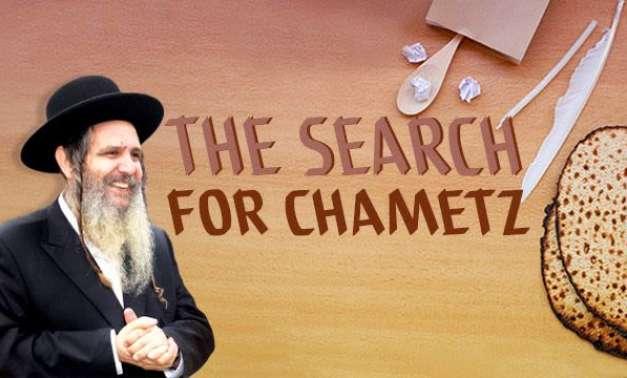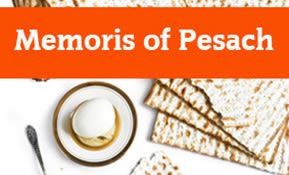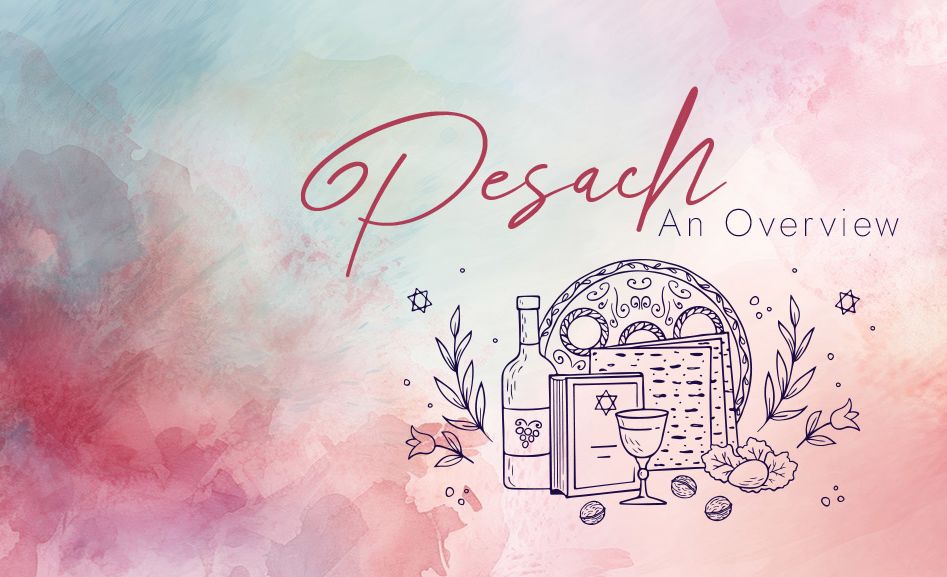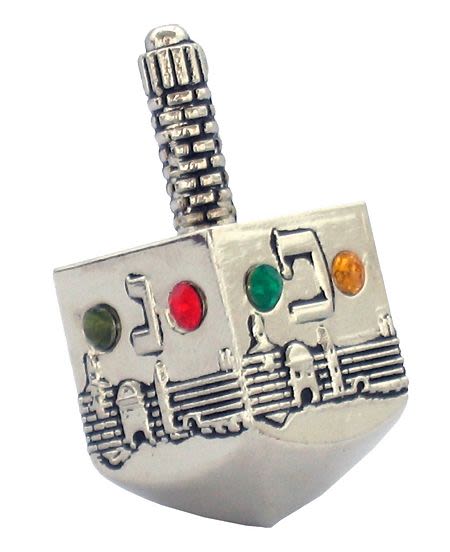
Chametz Countdown
As part of the Pesach preparations, we rid our homes and belongings of chametz (leavened products). During this process, we should focus on our hearts too…

Every year at this time things begin to get exciting. The Hebrew Month of Shevat is behind us, retaining with it the New Year for trees, Tu B’Shevat. Now, as the trees secretly prepare for the blossoms of spring, we also begin preparations for our own personal growth. We are on the edge of the darkness of winter with its clouds and storms, which obscure the light needed for the blooms’ development. As in all years past, through HaShem’s mercy, the gloominess will be replaced by a gradual clearing until the warmth and sunshine of summer will brighten and enhance our surroundings once again. These seasonal changes are also a metaphor for our lives as we are often plunged into a cold, dismal slump which, with G-d’s help, is only a temporary setback for a more elevated, brighter future.
Once Adar arrives we are commanded to be happy as we look forward to Purim which is just around the corner. This is an enjoyable mitzvah to fulfill as we organize Mishloach Manot packages to send to friends, give Matanot L’Evyonim (charity for the poor), plan costumes and our Seudat Purim, a festive Purim meal. It doesn’t take much to raise our spirits as we rejoice in the numerous miracles G-d bestowed upon our People, all brought back to mind as we read Megillat Esther (Esther’s Scroll) twice on Purim day.
When Purim concludes, unlike the completion of other celebrations where we are often left with an anticlimactic feeling, we stay buoyed by the anticipation of the approaching holiday of Pesach. We begin our countdown, knowing the days will fly quickly by if we don’t take proper advantage of every moment. This is where expertise in time management will come in handy. By way of our thorough house cleaning, preparation of shopping lists and purchasing the ‘Kosher for Pesach’ items, the plan is set in motion. Since the brunt of the Pesach workload often falls on the shoulders of the woman of the house, this is a prime opportunity for a husband to preserve Shalom Bayit (peace in the home) by an offer of assistance. Not only will he please his wife and ease her burden, he will bring personal rewards upon himself as well, both spiritually and physically, by the profound gratitude of his ‘other half’. It is also a good occasion for children to earn some mitzvah points of their own by chipping in with the activities. Bear in mind, being overzealous in our cleaning will not accomplish more than if we meet our obligation in a moderate way, resulting in less stress. If we are so frazzled and worn out on Seder night that we cannot participate properly, it is self-defeating and missing the point.
Just as spring is a time of renewal for the trees which appear to have been sleeping, it is also time for us to re-awaken from our spiritual slumber. A leafless tree in winter looks all but dead, yet within its trunk and branches very important changes are occurring. Similar to the leaves and buds which seem to be resurrected from this lifeless form, our spiritual rebirth should be taking place within our neshamas (souls) as we prepare for Pesach during the month of Nissan. Rebbe Nachman taught that the days of Nissan are days of tshuva, like the days of Tishrei (Likutay Moharan 1:49) when we solemnlyobserve the ten days of repentance, from Rosh Hashanah through Yom Kippur. Not only do we atone for our past sins and try to correct ourselves to be better people, strengthening in Torah, Mitzvot and Emuna, but we must plant the seeds of holiness within our children. They can only grow in the right path if we nurture them appropriately.
As part of the Pesach preparations, we are required to rid our homes and belongings of chametz (leavened products), since we are not allowed to eat nor see chametz throughout the week of Pesach. During this process, we should focus on the hidden reason for our efforts as well. Chametz, the raised bread we eat year round, represents pride whereas the matza of which we partake on Pesach signifies humility. As we meticulously search each of the cupboards, drawers and pockets of our clothing for any trace of chametz, we should look within our hearts to purge ourselves of any sign of haughtiness or vanity. When we remind ourselves that all we possess is a gift from HaShem and that we did nothing to deserve any of it, this will remove some of the air from our egos, flattening them to the rightful status of a matza.
In view of the situation in the world today, it is not enough to simply purify our own hearts and souls. We must act to carry others along with us, thereby bringing them closer to Our Creatorandto living inEretz Yisrael. All Jews are responsible for one another (Shavuot 39a). In the time of the redemption from Egypt, our People were given a choice; they could follow Moshe and leave their lives of slavery, or they could remain. Those who had no faith and could not see past their present situations did not join the exodus, and some were among those who perished in the plague of darkness. This time around, it is our duty to ensure that none are left behind.
 In the same way that a plant cannot flourish in the dark, mankind cannot survive without HaShem’s Radiance. The Beacon of Light is shining for those who do not look the other way, signaling us to hold on to the Life Raft, the Holy Torah. In Nissan, when we see the first fruits sprouting forth from the trees, we say a prayerto thank G-d for this miraculous, beautiful sight. According to Kabbalah, the blessing also helps correct the soul that may be reincarnated within the tree. Similarly, as we are confined to this material world, we pray for the arrival of Moshiach to free us and lead us on our journeytowards an era of peace. Time is ticking and the countdown has begun.Momentarily, we will find ourselves groping through the darkness, searching for our concealed crumbs of chametz, also symbolic of theyetzer hara (evil inclination)in‘Bedikat Chametz’. When daylight arrives, and we burn the last remnants of this bread, we will be transformed to a loftier world. Through this devotion may we merit, with HaShem’s loving compassion, to behold the fruition of our labors, the Ultimate Redemption and rebuilding of the Beit Hamikdosh, amen.
In the same way that a plant cannot flourish in the dark, mankind cannot survive without HaShem’s Radiance. The Beacon of Light is shining for those who do not look the other way, signaling us to hold on to the Life Raft, the Holy Torah. In Nissan, when we see the first fruits sprouting forth from the trees, we say a prayerto thank G-d for this miraculous, beautiful sight. According to Kabbalah, the blessing also helps correct the soul that may be reincarnated within the tree. Similarly, as we are confined to this material world, we pray for the arrival of Moshiach to free us and lead us on our journeytowards an era of peace. Time is ticking and the countdown has begun.Momentarily, we will find ourselves groping through the darkness, searching for our concealed crumbs of chametz, also symbolic of theyetzer hara (evil inclination)in‘Bedikat Chametz’. When daylight arrives, and we burn the last remnants of this bread, we will be transformed to a loftier world. Through this devotion may we merit, with HaShem’s loving compassion, to behold the fruition of our labors, the Ultimate Redemption and rebuilding of the Beit Hamikdosh, amen.










Tell us what you think!
Thank you for your comment!
It will be published after approval by the Editor.